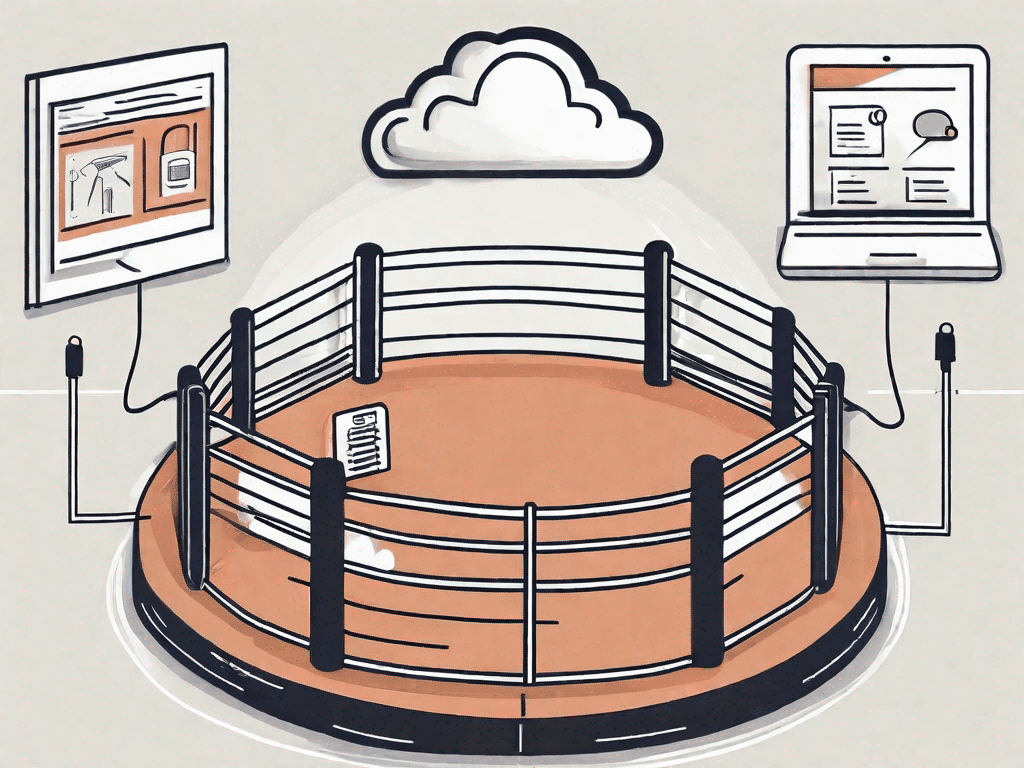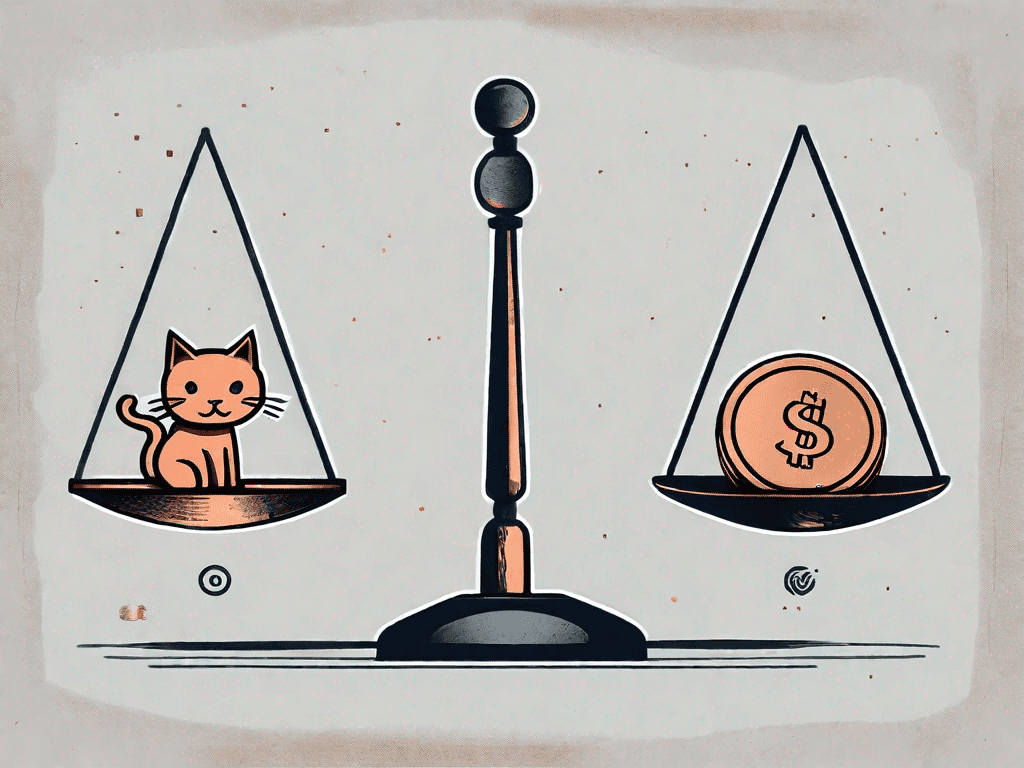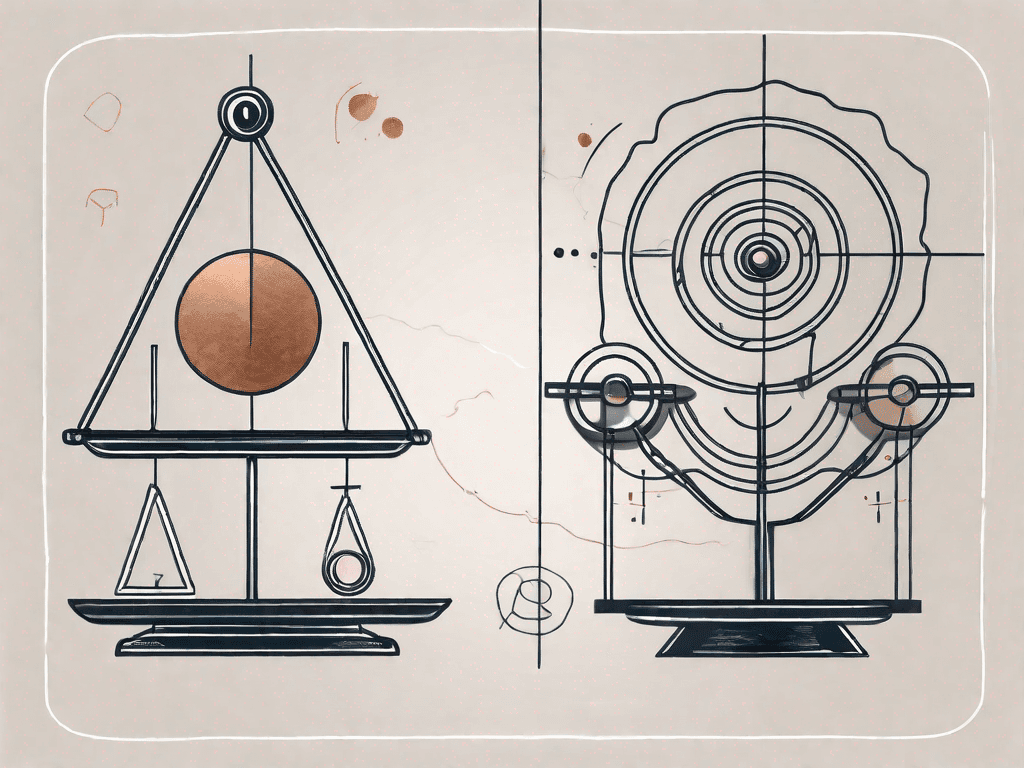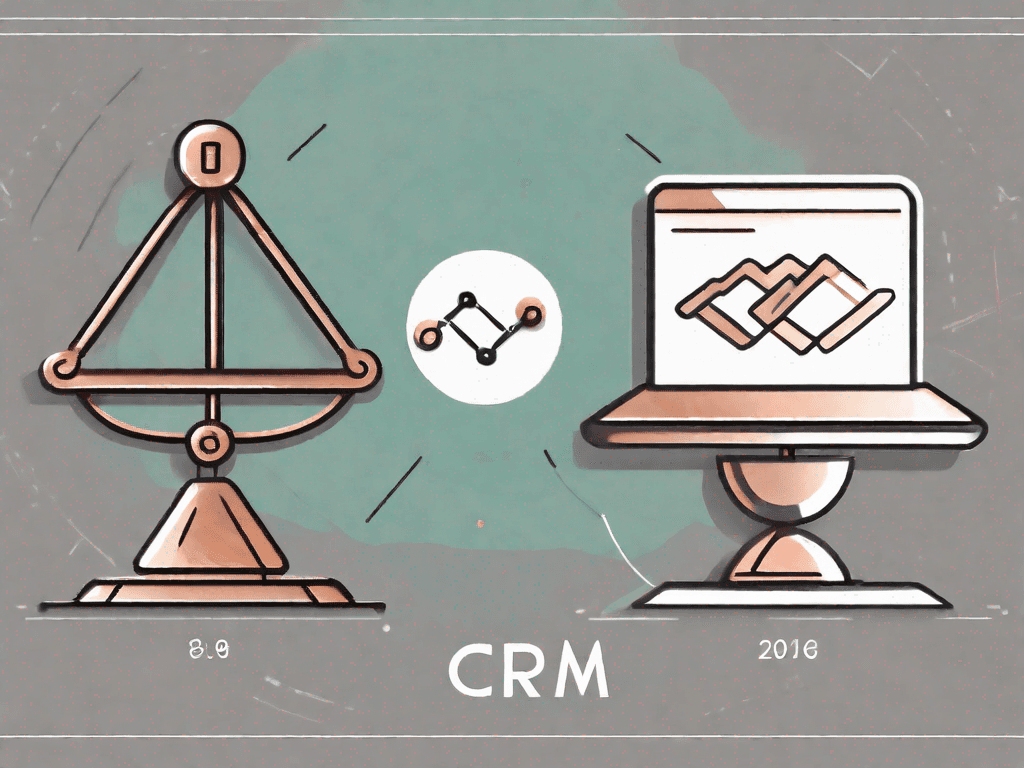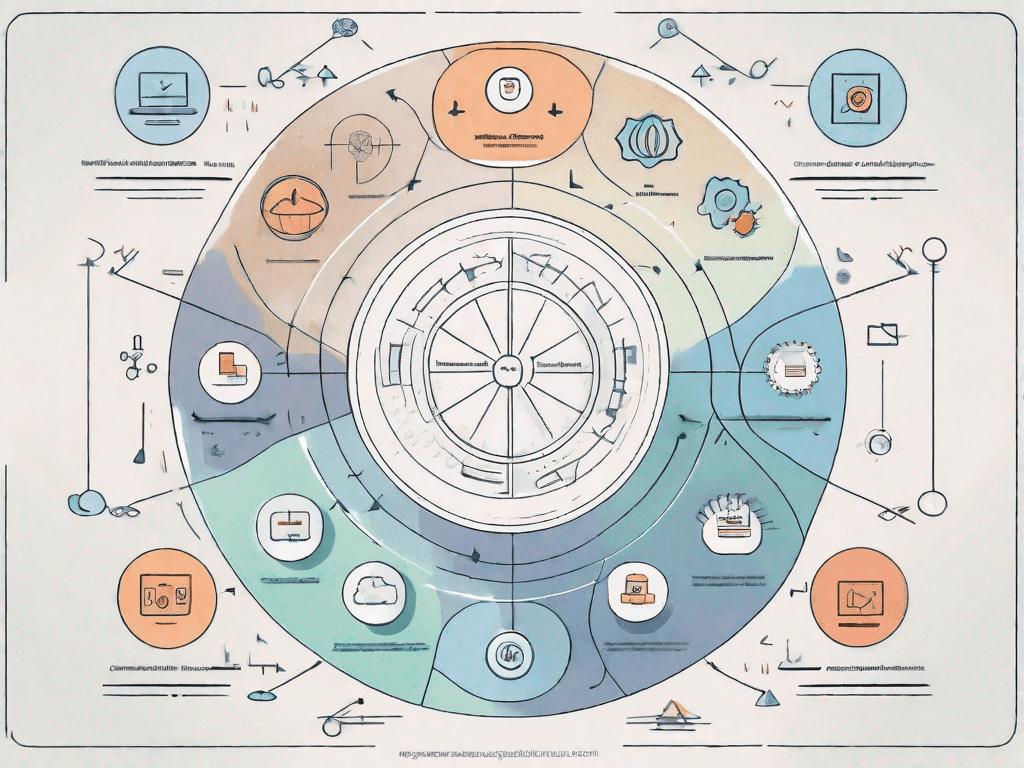
Close CRM vs Notion: Which CRM is the Best?
Close CRM and Notion are both popular customer relationship management (CRM) tools that offer unique features and benefits. In this article, we will compare and contrast the pros and cons of Close CRM and Notion, evaluate their pricing models, explore their integrations, and determine which one is best suited for different types of users.
1. Pros and Cons of Close CRM and Notion
1.1 Pros of Close CRM
Close CRM offers a comprehensive set of features specifically designed for sales teams. The platform provides efficient contact and lead management, seamless email integration, and powerful sales analytics. With Close CRM, sales teams can easily track their leads, manage their pipeline, and analyze their sales performance. The platform's user-friendly interface ensures that sales reps can navigate through the system effortlessly, saving them time and effort.
Moreover, Close CRM's email integration feature allows users to send and receive emails directly within the platform. This eliminates the need for switching between multiple applications, streamlining the sales process and improving productivity. The powerful sales analytics provided by Close CRM enables teams to gain valuable insights into their sales performance, identify trends, and make data-driven decisions to optimize their sales strategies.
1.2 Cons of Close CRM
Despite its numerous benefits, Close CRM may not be the best fit for all users. Some users find the pricing structure to be on the higher side, especially for small businesses or startups with limited budgets. While Close CRM offers a range of features, it may require a learning curve for new users to fully understand and utilize all the functionalities. This can be time-consuming and may hinder the onboarding process for sales teams.
Additionally, Close CRM's specialization in sales features means that it may not be as versatile as other platforms when it comes to non-sales related tasks. Teams looking for a more all-in-one solution that combines CRM with project management or collaboration features may find Close CRM lacking in those areas.
1.3 Pros of Notion
Notion is a versatile and highly customizable productivity tool that goes beyond traditional CRM functionalities. It enables teams to collaborate and manage projects with ease, thanks to its flexible workspace, database capabilities, and extensive template library. With Notion, teams can create custom workflows, track tasks, and share documents, fostering seamless collaboration and boosting productivity.
Notion's intuitive interface and drag-and-drop functionality make it easy for users to create and organize their own workflows. The platform's flexibility allows teams to adapt it to their specific needs, whether it's for project management, knowledge base creation, or team collaboration. Notion's extensive template library provides users with a wide range of pre-designed templates for various use cases, saving them time and effort in setting up their workspace.
1.4 Cons of Notion
One limitation of Notion is that its CRM features are not as robust or specialized as Close CRM. While Notion offers basic CRM functionalities, it may not be the best choice for sales-centric teams requiring advanced sales automation or reporting features. Teams heavily focused on sales may find Notion lacking in terms of specialized sales tools and analytics.
Additionally, while Notion offers a free plan, some advanced features and integrations are only available with the paid plans. This may not be suitable for budget-conscious users or teams looking for a fully-featured CRM solution without additional costs. Notion's pricing structure may require careful consideration to ensure it aligns with the team's needs and budget.
1.5 Key Differences between Close CRM and Notion
When comparing Close CRM and Notion, it's essential to consider their key differences. Close CRM primarily focuses on sales teams and offers specialized sales features, whereas Notion provides a broader range of functionalities beyond CRM. Close CRM excels in sales automation and analytics, providing sales teams with the tools they need to streamline their sales processes and make data-driven decisions.
On the other hand, Notion excels in collaboration and project management. Its flexible workspace and extensive template library make it a powerful tool for teams to work together, manage projects, and organize information. Notion's versatility allows it to be adapted to various use cases, making it suitable for teams beyond sales, such as marketing, product development, or customer support.
Ultimately, the choice between Close CRM and Notion depends on the specific needs and priorities of the team. Sales-centric teams may find Close CRM more suitable for their requirements, while teams looking for a versatile and customizable productivity tool may opt for Notion.
2. How does Close CRM pricing compare to Notion?
2.1 Close CRM Pricing
Close CRM offers three pricing plans: Basic, Professional, and Business. The Basic plan starts at $25 per user per month, while the Professional and Business plans are priced at $65 and $145 per user per month, respectively. The pricing structure is based on the number of users and includes different features and usage limits, making it ideal for businesses of various sizes.
2.2 Notion Pricing
Notion offers a pricing structure based on individual use or team collaboration. The Personal plan is free, allowing users to access core features. The Team plan is priced at $10 per user per month and offers additional features such as enhanced collaboration and administrative controls. The Enterprise plan, designed for larger organizations, offers custom pricing based on specific requirements.
2.3 Pricing Comparison
When comparing pricing, it's important to consider the specific needs of your organization. Close CRM may be cost-effective for sales-focused teams that require advanced sales features. On the other hand, Notion's pricing is competitive for teams or individuals looking for a versatile tool that goes beyond CRM capabilities.
3. How do Close CRM integrations compare to Notion?
3.1 Close CRM integrations
Close CRM integrates seamlessly with various popular tools such as Gmail, Outlook, Slack, and Zapier. These integrations enable users to consolidate their workflows and effortlessly manage their sales processes. Close CRM ensures smooth communication and collaboration by synchronizing data between different platforms.
3.2 Notion Integrations
Notion offers integrations with popular collaboration tools like Google Drive, Dropbox, and Trello. These integrations enhance productivity and enable teams to streamline their project management. However, Notion's CRM-specific integrations are not as extensive as Close CRM's, which may be a crucial factor for organizations requiring deep CRM integrations.
4. Which one is the Best for You?
4.1 The Best for Salespeople
If you are primarily focused on sales and require advanced sales automation, analytics, and specialized CRM features, Close CRM is the ideal choice. Its robust sales-centric functionalities empower sales teams to manage contacts, leads, and deals effectively.
4.2 The Best for Consultants
For consultants who need a versatile tool to manage projects, collaborate with clients, and organize information, Notion is a great fit. Its flexible and customizable features enable consultants to create comprehensive project plans, documents, and databases.
4.3 The Best for Digital Marketing Agencies
For digital marketing agencies, a CRM tool that seamlessly integrates with marketing automation platforms and facilitates lead nurturing and management is critical. In such cases, Close CRM's specialized sales features and integrations make it the best choice for digital marketing agencies seeking effective lead management and sales pipeline optimization.
In conclusion, Close CRM and Notion both offer unique features and advantages, catering to different user requirements. While Close CRM excels in specialized CRM features and sales-centric functionalities, Notion provides a broader range of customizable features for collaboration and project management. Assess your specific needs and consider factors such as pricing, integrations, and user preferences to determine which CRM tool is the best fit for your organization.









![The 8 Best Social CRM Software in 2025 [Comparison]](https://framerusercontent.com/images/RYHyYapdgIi83BEWtMdX418.png)
![The 6 Best LinkedIn CRM in 2025 [Comparison]](https://framerusercontent.com/images/Luywfni7ZKjb19yghbhNPy4I4qQ.png)




![The 5 Best Twitter CRM [Comparison]](https://framerusercontent.com/images/EWcbvYnVZglJLO8jp3OlHkTvsHo.png)










